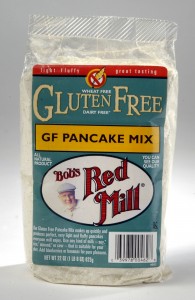 Gluten-free eating has recently become another up-and-coming diet trend. What was once a lifestyle created for those with gluten allergies is now catching on all over, with promises of more energy, weight loss and an overall healthier being.
Gluten-free eating has recently become another up-and-coming diet trend. What was once a lifestyle created for those with gluten allergies is now catching on all over, with promises of more energy, weight loss and an overall healthier being.
Writing off one food source might sound easy, but gluten-free eating takes careful planning, and isn’t for everyone.
“Gluten is a protein found in wheat and other grains,” said Selena Baker, a registered dietitian at St. Rose Hospital in Hayward. “Gluten gets absorbed into the body just like any protein, but for people who have an allergy, gluten can cause an inflammatory allergic reaction.”
Gluten can be found in several of the foods many people eat on a regular basis, such as bread, pasta, cookies, bran products, pizza, oatmeal, and even several condiments, salad dressings and spices that contain additives or fillers.
Gluten-free eating is necessary to some people who have gluten intolerances, including Celiac Disease (CD), a condition where gluten is not properly absorbed into the body, causing digestive problems and intestinal damage. When a person with any gluten intolerance consumes gluten products, they can have symptoms of pain, bloating and diarrhea.
There are other types of gluten intolerances and allergies too, ranging from mild to more severe. Even though eliminating gluten is the only way to reduce the symptoms of CD, some health deficiencies can occur.
Because gluten is an ingredient in a lot of carbohydrate-dense foods, gluten–free dieters can sometimes go on an Atkins-like diet unintentionally, which can cause some health issues, like muscle loss and lack of energy. Those who do not eat gluten have the task of finding good carbohydrates that can replace the ones they are losing.
Over the last decade, several gluten-free food products can be bought in most supermarkets, but those with severe allergies must be careful with certain brands that still have cross-contamination issues in factories and test kitchens. Many high-end restaurants are now coming up with gluten-free selections, and many bakeries offer gluten-free desserts. Gluten-free is now becoming associated with “low carb,” which is a more popular diet.
Although gluten free dieting is often attributed to weight loss, it is not an easy way to maintain a balanced diet.
“I wouldn’t recommend eliminating gluten for someone who doesn’t have gluten intolerance,” said Baker. “However, I will say that half of the grains we eat should be whole grains. I encourage trying other gains like quinoa or brown rice.”
Replacing half of your grain intake with whole grains is beneficial to one’s health because the outer shell of the wheat grain contains the majority of nutrients and protein.
Having a healthier lifestyle does not always mean you need to eliminate something entirely out of your diet. Because those who are allergic or have intolerances to gluten feel better when they don’t eat it, that doesn’t necessarily mean someone without such problems will, too. Moderation of all the food groups seems to be the real key to maintaining a healthy weight.





















